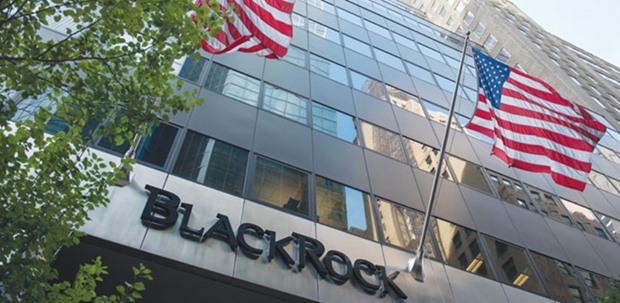The worst may be over for emerging-market bonds, according to two of the world’s largest debt managers.
Bond valuations already reflect declines in commodity prices, and the policies of the major global central banks have made “riskier” assets more attractive, analysts at BlackRock, the world’s largest money manager, wrote in a research note last week. Franklin Templeton’s Michael Hasenstab, who oversees $125bn in assets, also says negative sentiment toward developing markets has reached extreme levels, and favours countries including Brazil, Mexico and South Korea.
The managers join a growing number of voices, including Goldman Sachs Asset Management, that are recommending selective buying of emerging-market bonds. With borrowing costs at the lowest levels since the depths of the global financial crisis, investors are being compensated for challenges facing emerging markets ranging from falling commodity prices to China’s economic slowdown, they say.
“It is premature to say that the weather has totally cleared,” a team of emerging-market debt managers at BlackRock led by New York-based Pablo Goldberg and London-based Sergio Trigo Paz wrote in a research note Tuesday. “But with many of the market ‘negatives’ accounted for, it is time to concentrate on some of the ‘positives,’ which we see gaining strength as market drivers going forward.”
China’s economy has stabilised, and policy makers appear to be “more comfortable with the current level” of the yuan, alleviating pressure on emerging markets, according to BlackRock, which oversees $4.6tn. A three-year decline in developing-nation currencies is also allowing for “substantial and quick re-balancing of their domestic economies.”
Goldberg and Paz said they favour emerging-market debt that’s dollar-denominated and investment grade. Local-currency bonds are also becoming “more balanced” after a three-year selloff, though volatility remains high. Hasenstab, Franklin Templeton’s chief investment officer for global macro agrees, who oversees the fifth-largest actively-managed fixed-income fund in the world, said the pessimistic sentiment toward emerging markets today resembles what it was during the global financial crisis, which proved to be a buying opportunity.
While opportunities are now “a lot narrower,” they are still available in countries such as Mexico, South Korea, Malaysia, Indonesia and the Philippines, Hasenstab said in a blog post. These are the countries with “solid fundamentals,” but are treated as if they were in a crisis, he said, adding that he’s avoiding Turkey, Russia, Venezuela and South Africa.
“There is a deceleration, there is a moderation, there is not a collapse,” Hasenstab said in a video on the Franklin Templeton website. “But the markets are pricing in a collapse,” he said. “So this to us is a fantastic opportunity when you have a huge disconnect between reality and market prices.”
Emerging markets stand out in a world where more than $7tn of global government debt yields less than zero.
The extra yield investors demand to hold emerging-market dollar bonds rather than US Treasuries climbed to 5.07 percentage points on February 11, the highest since 2009, according to data compiled by JPMorgan Chase & Co.
In January, Goldman Sachs’s emerging-market bond manager Yacov Arnopolin said that 2016 could be the year when developing-nation economies and currencies bottom out.
“We don’t anticipate a rapid rebound or V-shaped recovery,” Arnopolin wrote in a note. “Rather, we see emerging markets turning the corner after three straight years of declining valuations and downward growth projections.”
Arnopolin said he favours countries of oil importers, including the Dominican Republic and Costa Rica, while staying bearish on Middle East nations.
For Templeton’s Hasenstab, who in the past made contrarian bets on beaten-down assets including debt in Ukraine and Ireland, Brazilian securities could be his next winning wager.

BlackRock logo is displayed at its offices in New York. Bond valuations already reflect declines in commodity prices, and the policies of the major global central banks have made ‘riskier’ assets more attractive, according to analysts at BlackRock.
